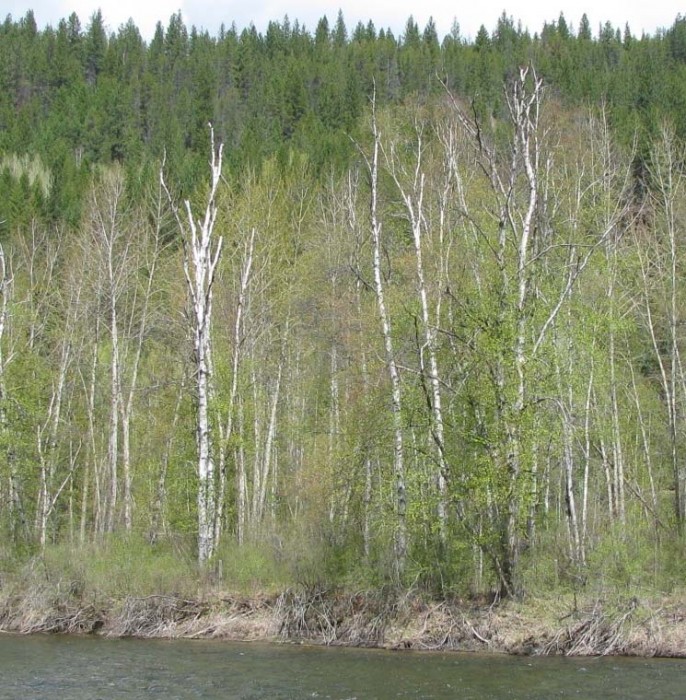Investigation of Birch Decline
| Researcher's Name: | Michael Murray, Ph.D. |
| Researcher's Affiliation: | BC Ministry of Forests, Lands and Natural Resource Operations |
| Researcher's Job Title: | Forest Pathologist |
| Researcher's Email address: | [email protected] |
| Project Start Date: | 2009 |
| Project End Date: | On-going |
| Location of Study Area: | Columbia Mountains, British Columbia |
| Links to Published Material: | |
| Sponsors/Funders were: | BC Ministry of Forests, Lands, and Natural Resource Operations |
Abstract
Co-Authors: Carlos Sarmiento (UBC) and Richar Hamelin (UBC).
Keywords: Birch decline, climate change, Armillaria, tree disease.
Paper Birch (Betula papyrifera) offer a variety of attributes in BC including syrup, veneer, beverage flavour, medicinal tonic, and teeth cleaner. The decline of paper birch has been widespread throughout the Southern Interior region of the province. Characterized by crown die-back, most mature birch appear susceptible. The spatial distribution patterns and actual causation remain poorly understood. Beginning in 2009, 25 birch sampling sites were inventoried in the region. A total of 247 trees were increment cored. Additionally, several dozen trees had cross-sections collected. These samples provide the material to identify possible perturbations in growth, tree stress, and better understand predisposing factors. Using a tree ring lab in Nelson, possible links between climate and tree stress are being examined.

Crown die-back in birches. Photo by Michael Murray.
A separate sampling was conducted to target fungal pathogen. After felling 26 trees, we cut-off upper stem segments where the dieback was occurring. The logs were then delivered to the UBC Forest Pathology Lab, supervised by Dr. Richard Hamelin. The lab has identified decay fungi which typically aren’t mortality agents alone. Armillaria ostoyae was also common. Cryptosporella tomentalla was found near Nelson and is the first-known occurence in BC.
Deliverables
Identification of forest health agents contributing to birch decline. Implications for forest composition, effects of climate change, tree declines.
Future Research Suggested by Project
Does loss of birch trees lead to increased root disease in associated conifers?

